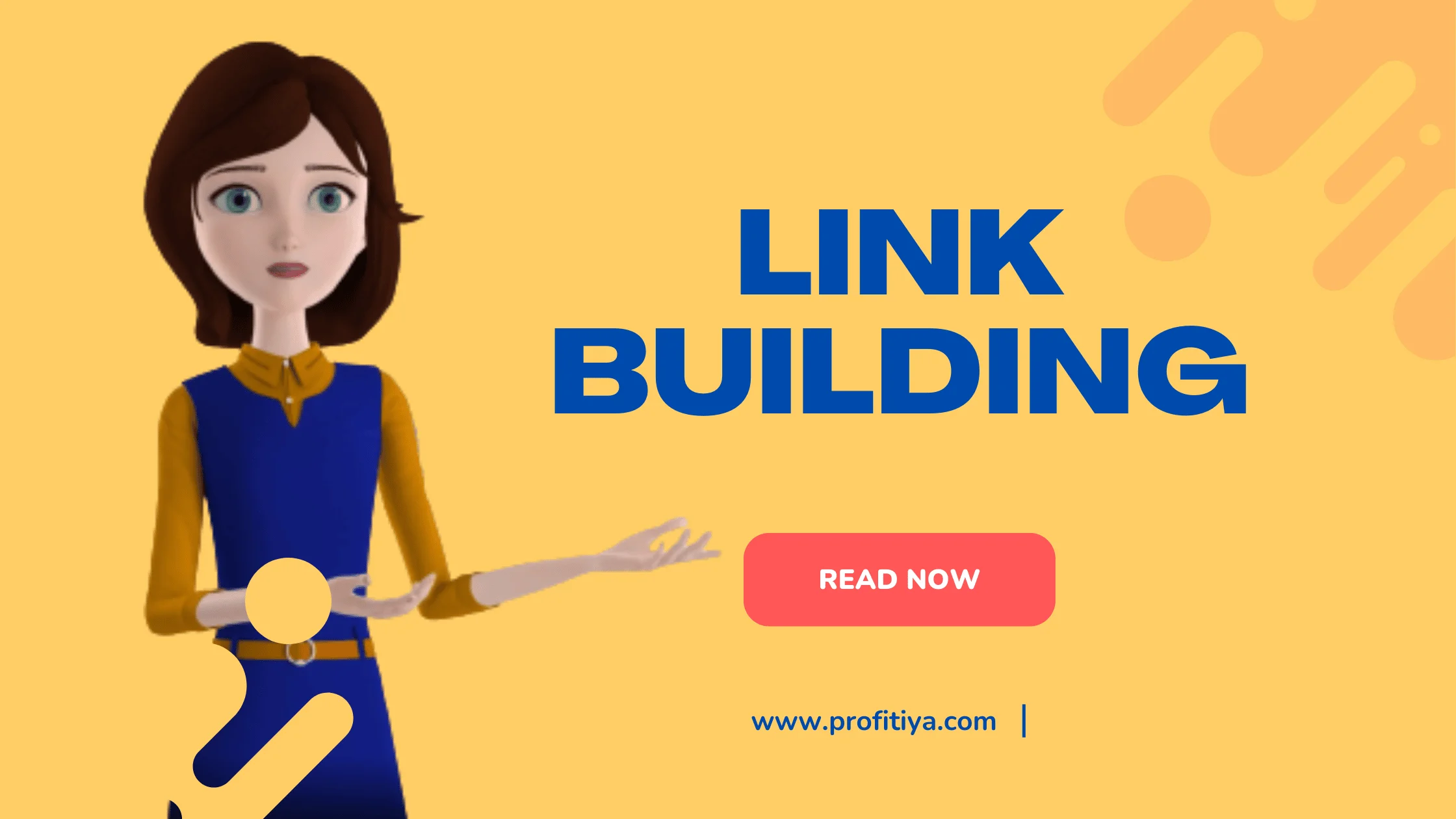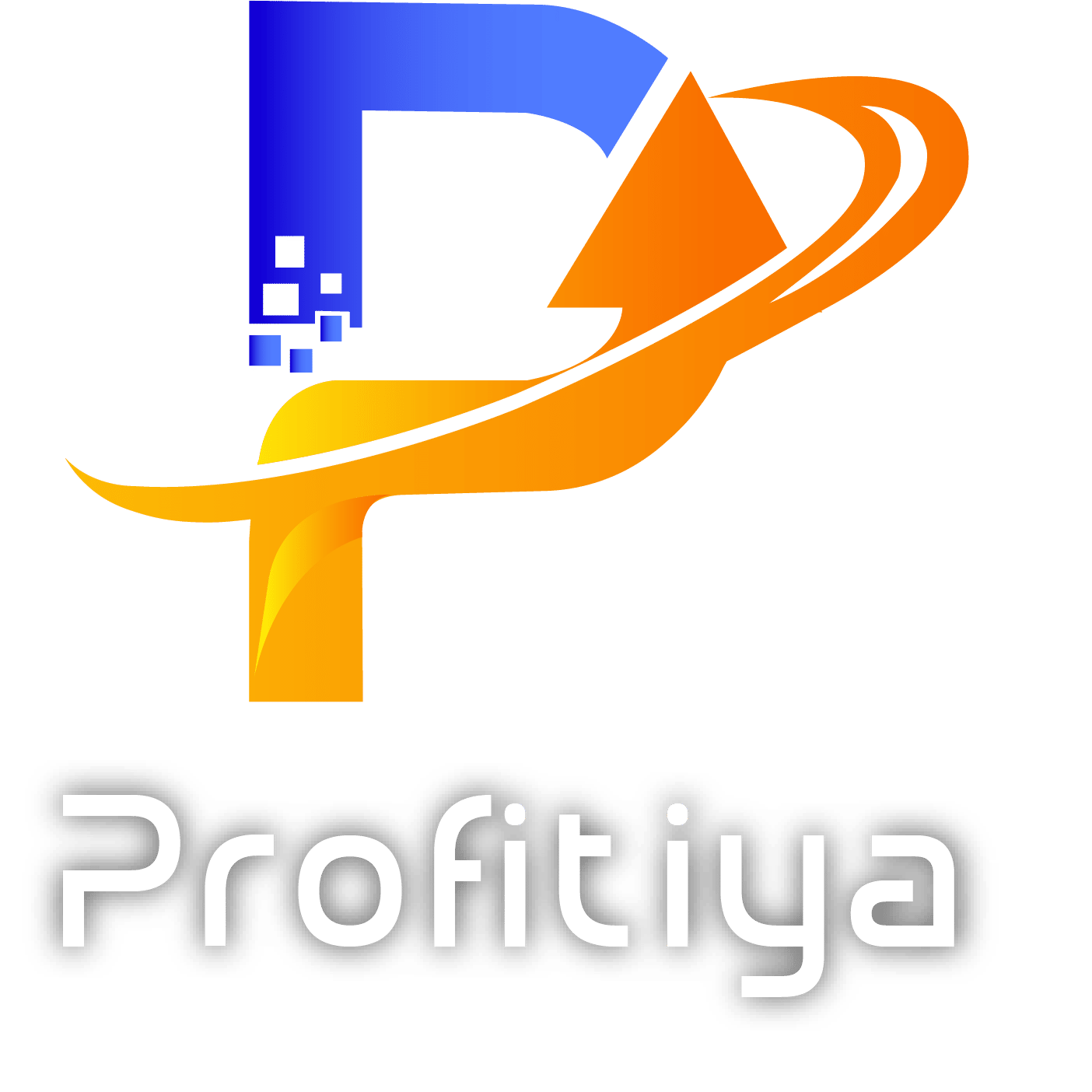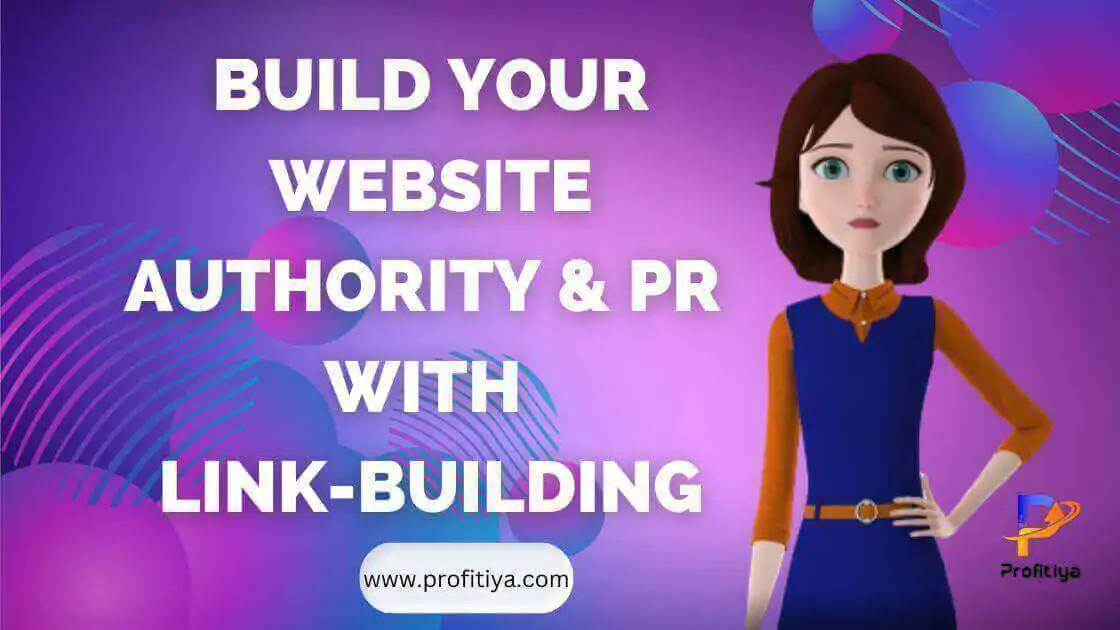As a business owner, you know that online visibility is key to attracting new customers and growing your business. But what’s the best way to get noticed by potential customers? One effective strategy is link-building. Link-building is creating links from other websites to your website. It helps improve your website’s authority and helps you in search engine ranking.
Are you interested in learning more about link-building? Check out our article. In this article, we will teach you everything about link building. So, let’s get started with what link building is.

What Is Link-Building?
Link-building is the process of acquiring links from other websites to your own. Links are important for SEO because they act as votes of confidence from other websites, and search engines consider the more links you have, the more popular your website. Also, link-building is a great way to build relationships with other website audiences and improve the visibility of your small business online. In addition, link-building helps you increase your domain authority, increase your website’s traffic, and improve your search engine rankings.
What Are The Types Of Link-Building?
There are many different types of link-building, and each has its advantages. Some of them include:
Editorial Link
Editorial link is probably the most “natural” way to build links and involves simply creating great content that other people want to link to their site.
Resource Link-building
It involves creating helpful resources and boosts your build links by getting backlinks from resource pages.
Guest Posting
It involves writing articles for other websites in your niche, which usually includes a link to your site.
Broken Link-Building
It involves finding broken links on other websites and replacing them with links to your site.
Directory Link-Building
It involves submitting your website to different online directories,s but it can be considered a spamming tactic of link building.
Social Media Link-Building
It involves using social media platforms (such as Twitter, Facebook, LinkedIn, etc.) to promote your website and content.
Acquired Link
It is a link acquired through other means, such as buying it from another website or receiving it due to a merger or acquisition.
Reciprocal Link
It is a link that you have exchanged with another website. It’s generally considered less valuable than an editorial link.
Blog And Forum Comment Link
It involves leaving comments on blogs and forums with links to your website. It can be a great way to build links, but make sure that your comments are relevant and add value to the discussion.
Image Linking
It involves linking to your website (including the URL) from images you posted online. It can be a great way to build links if you have quality images such as infographics, data charts, and so on that others would want to link on their website.
Press Release Link-Building
It involves creating press releases and submitting them to online directories. It can be a great way to build links. These link-building strategies can be effective, but the mother of link building is guest posting with high-traffic websites. It can give you a quick boost and traffic.
What Are The Benefits Of Link-Building?
If you’re running a small business, link-building should be an important part of your online marketing strategy. Link-building can help you get more traffic to your website, and it can also improve your search engine rankings.
There are many benefits of link-building, but here are some of the most important ones:
1. Link-Building Can Help You Get More Traffic
If you have high-quality links pointing to your website, you’re more likely to get traffic from those links. Link-building is a great way to get more people to visit your site.
2. Link-Building Improves Your Search Engine Rankings
Links are one of the most important ranking factors for search engines. If you have high-quality links pointing to your website, you’re more likely to rank higher in the search results.
3. Link-Building Can Help You Build Relationships With Other Websites. Audience
link-building is a great way to build relationships with other websites in your industry. If you have high-quality links pointing to your website, other websites are more likely to link to you.
4. Link-Building Can Help You Generate Leads And Sales
If you have a link pointing to your website from a high-traffic website. If those clicks turn into leads or sales, link-building can be a great way to generate revenue for your business.
5. Link-Building Can Help You Brand Your Website
If you have links from high-quality websites, people are more likely to remember your website. So, overall, link-building is a great way to build brand awareness for your business.
What Are Some Factors To Consider When Choosing A Link-Building Strategy?
Here are some factors to consider when choosing a link-building strategy:
- The type of link you want (do you want a follow link or a nofollow link?)
- The quality of the link (is it from a reputable website?)
- How much time and effort are you willing to put into link-building?
- Your budget for link-building
Once you’ve considered all these factors, you should know what link-building strategy is best for your small business.
What Is The Best Link-Building Strategy?
There is no one-size-fits-all answer to this question, as the best link-building strategy will vary depending on the nature of your business and your target audience. However, there are a few general tips that can help you get started:
1. Outreach
Outreach to other businesses in your industry: Reach out to other businesses and offer to collaborate on a project or piece of content. It is a great way to get high-quality links from relevant websites.
2. Guest Blogging
Guest blogging on relevant websites: It is a great way to get your name and your business’s name out there while also building links to your website. Make sure to only guest blog on high-quality websites relevant to your industry.
3. Broken Link-Building
Broken link-building is a process whereby you find broken links on relevant websites and then contact the website owner to let them know and offer to provide a replacement link. It is a great way to get high-quality links from relevant websites.
4. Brand Mentions Link-Building
Brand mentions link-building involves reaching out to website owners with resource pages and asking to be included. It is a great way to get high-quality links from relevant websites.
5. Infographic Link-Building
Infographic link-building involves creating stunning infographics based on the data where you want to get links. Then, reach out to website owners to ask them to link to them.
6. Social Media Backlinks
Social media link-building involves using social media platforms like Twitter, LinkedIn, and Facebook to build links to your website. It is a great way to get high-quality links from relevant websites.
7. Link Bait
Link bait is a process whereby you create content that is designed to be link-worthy and then reach out to other websites in your industry to ask them to link to it. It is a great way to get high-quality links from relevant websites.
Link-Building Tools
There are several link-building tools available to small businesses and online marketers. Some of the most common link-building tools are:
SEOquake
SEO Quake is a link-building tool that allows you to check the link popularity of any website, as well as the PageRank and Alexa Rank.
Linkclump
Linkclump tool lets you quickly gather and copy a list of links from any web page.
Semrush
Semrush is an all-in-one SEO tool that gives you a complete link-building analysis and provides a comprehensive view of any website’s link profile.
Majestic SEO
Majestic SEO is a link-building tool that provides link popularity data for any website and detailed information about each link.
Open Site Explorer
An open site explorer is a link-building tool from Moz’s Linkscape tool that provides link data and analysis for any website.
Screaming Frog
By using screaming frog you quickly crawl and analyze any website’s link structure.
Linkody
Linkody is a link-building tool that allows you to monitor your link profile and receive notifications whenever a new link is added or removed.
BuzzStream
BuzzStream helps you to research, organize, and outreach to high-quality link prospects.
NinjaOutreach
Ninja is a link-building and link prospecting tool that allows you to quickly find and contact potential link partners.
Pitchbox
Pitchbox helps streamline your link outreach process by automating repetitive tasks like email follow-ups. By using link-building tools, you can increase your link popularity, which can lead to more traffic and better search engine rankings.
How Can We Create Successful Link-Building To A Website?
We can create successful link-building to a website by taking a few key steps;
Get To Know Your Audience
Link-building is all about creating relationships. To build links that are valuable and will be clicked on, you need to understand who your target audience is and what they’re interested in.
Find The Right Website
Once you know your target audience, you can look for a website that would be a good fit.
There are a few things to consider when looking for link partners;
Relevance
Make sure the other website is relevant to your site and audience.
Authority
Look for links only on those websites that are reputable and have high domain authority.
Popularity
Choose the website that is popular with your target audience.
Create Link-Worthy Content
One of the most important aspects of link-building is creating link-worthy content. It means creating content that is interesting, informative, and well-written.
Reach Out To Website Owners
Once you’ve found potential websites, reach out and build relationships. The best way to do it is by creating personalized emails or messages that explain why you think they would be a good link partner.
Monitor Your Link-Building Progress
link-building is ongoing, so monitoring your progress and adjusting your strategy as needed is important. One way to do It is by using Google Analytics to track the traffic you’re getting from your links. You can also Audit your site using Semrush or Aherfs to find the best opportunities for you.
By following these steps, you can create successful link-building to a website and improve your online visibility.
What Are Some Common Link-Building Mistakes?
Here are some common mistakes of link-building that should always be avoided:
Not Using Keyword-Rich Anchor Text
One of the most common link-building mistakes is not using keyword-rich anchor text. When link-building, it’s important to use keywords and phrases in your anchor text that are relevant to your target page. It will help improve your link popularity and search engine rankings.
Broken Internal Links
Another common mistake is having broken internal links on your site. When link-building, check your site for broken links and correct them. It will help improve the user experience on your site and make it easier for search engines to crawl and index your pages.
Badly Structured Internal Links
Another mistake that people make when link-building is having badly structured internal links. Your internal link structure should be well planned and organized so that search engines can easily crawl and index your pages. A well-structured link structure will also help improve the user experience on your site.
Confusing Website Navigation
One of the biggest link-building mistakes is confusing website navigation. Your website should be easy to navigate so users can find the information they want. If your website is difficult to navigate, users will likely leave it, leading to a high bounce rate.
Having The Wrong Linking Strategy
One of the most common link-building mistakes is having the wrong linking strategy. There are many ways to build links, but not all are effective. It’s important to research and choose a link-building strategy that will work best for your website and your business goals.
Not Diversifying Your Link Sources
When link-building, it’s important to diversify your link sources. It means that you should not just get links from one website. You should try to get links from various websites, including directories, blogs, and social media sites.
Breaking The Three-Click Rule
Another link-building mistake is breaking the three-click rule. The rule states that users should be able to find the information they want on your website within three clicks. If it takes longer than that, they will likely leave your site.
Accumulating Toxic Backlinks
One of the worst link-building mistakes is accumulating toxic backlinks. These are links from spammy or low-quality websites that can hurt your website’s reputation. If you have too many of these backlinks, it could result in a penalty from Google. So, it’s important to be careful about the links you are getting and to only get links from high-quality websites.
How Can You Avoid Link-Building Mistakes?
Here are some tips you can use to avoid link building mistakes:
1. Don’t Engage In Link-Building Schemes
Link-building schemes are black hat SEO tactics that involve artificially inflating the number of links pointing to a website. It is done by buying links, participating in link farms, or using other link scheme techniques. Link-building schemes will not only penalize your website by Google but can also result in your site being removed entirely from the search engine results.
2. Do Your Research Before Link-Building
Before you start link-building, it’s important to do your research and target high-quality websites that are relevant to your business. Linking to low-quality or irrelevant websites can hurt your SEO, so you must be selective about the sites you link to.
3. Make Sure Your Links Are Relevant And Contextually Appropriate
When link-building, ensure that the links you’re adding are relevant and contextually appropriate. Linking to irrelevant or off-topic websites will hurt your SEO and frustrate your website and visitors.
4. Don’t Participate In Link Directories Or Link Exchanges
Link directories and link exchanges are websites that allow you to add your website link to their directory in exchange for adding one of their links to your website. These link-building tactics are no longer effective and can damage your SEO.
By following these tips, you can get more fruits in your website basket and boost your online presence.
What To Do If I Don’t Have Time For Link Building?
If you’re serious about link-building but don’t have time to do so, you need to hire an expert. A link-building expert can help you save time and ensure that your link-building campaigns are effective. A link-building expert can also help you avoid making mistakes that could damage your SEO.
Meet Us!
Profitiya is a full-service digital marketing agency that helps small businesses achieve their online marketing goals. We offer various services, including website design, search engine optimization, social media marketing, and more. We have over 6 years of experience in the digital marketing industry, and we’re dedicated to helping our clients succeed online.
You can learn more about us or book a free consultation to talk to us about your business challenges.
About The Author
With a deep understanding of SEO and a commitment to transparent communication, we guide you through the ever-changing digital landscape by ensuring your brand gets the attention it deserves. We believe in the power of helpful content and staying up-to-date with the latest industry trends to provide timely updates for your website. Trust Profitiya’s team to be your partner in achieving online success!

